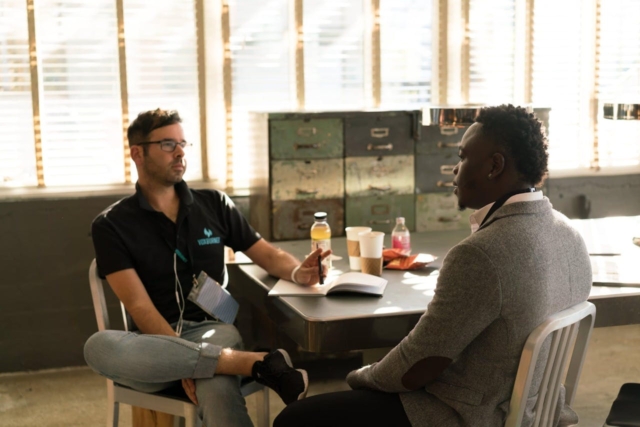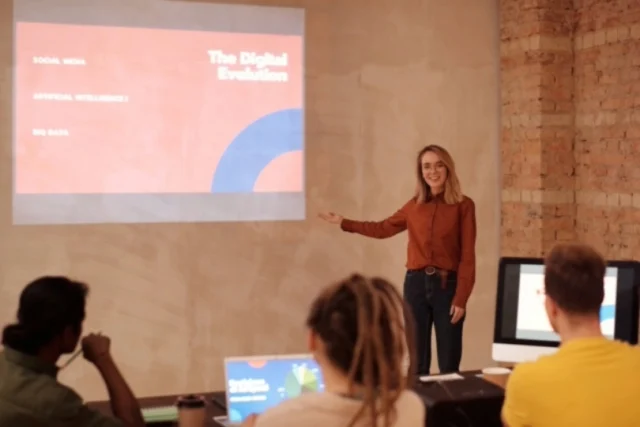A new era for interviewing is looming

When lockdown first hit, the Virtual Recruiting and Employment Confederation’’s Report on Jobs, covering the period 12-25 March, showed the quickest decline in permanent and temporary staff placements since 2009, offering an insight into how the jobs market is performing during the pandemic. Fears are high that even with the government protection being offered around the world,the job market will take a significant hit and competition will truly be at an all-time-high level. The interview experience has to adapt to cope with this projected boom.
With government guidelines restricting candidates to only leave their humble abodes to shop for essentials or to partake in exercise, the idea of going through the interview process which could spell out multiple rounds can naturally feel like too lengthy a process on the surface. But actually, our day-to-day habits of video calling and apps based networking means this doesn’t need to be the case for all parties involved.
The notion of virtual-interviewing is not a new concept – many businesses use it either for the first stage when the hiring-manager would get more of a feel for the candidate before deciding to meet them face-to-face or for an emergency where this technology was needed at a short notice owing to a change in either parties schedule.
In reality for quite a while now it has been possible for companies to source, interview and make a hire virtually without having to meet a candidate face-to-face, and during this pandemic where hiring managers have resorted to working from home like the vast majority of us this technology is the only way to get the right candidate through the door.
However for some organisations they are still very much getting to grips with this virtual-concept with such technology already limited in place to interview let alone onboard a candidate, while there will always be the traditional notion that meeting someone face-to-face will always be better and offer further reassurance. A force multiplier is needed to ease the concerns and raise the candidate experience so virtual doesn’t feel alien.
Some top tips for doing this well include:
- Make sure you plan ahead for a smooth interview: Check which online video software your candidate prefers to use for the interview and that is easy for them to access, supported by a good internet connection and a clear microphone/speaker setup and good lighting.
- Book longer interview slots and allow more time for any tests too: Give more time to candidates to answer questions. They may be more anxious with the online approach. Don’t forget there are often time delays during video calls, so account for that.
- Make the experience feel as human as possible: Offer feedback as you would in person. Be sure to Tell users what the next steps are and put them at ease with clear and regular communication.
If there is one thing that this pandemic has taught us is that we all need to adapt more than ever before and life in general will be different once the dust has settled, thus it is paramount for organisations both small and large to be ahead of the game and their competitors when it comes to the hiring-front.
LinkedIn recently reported that 70% of companies still take anywhere between one and four months to make a new hire, while given the ten-day shelf-life of the best talent, not only do businesses risk losing to competition, they also risk losing to a prospective-talent’s short attention span.
With Virtual Recruiting, companies will not only be able to radically shorten the time it would take to make and onboard a new hire, especially those who are needed to make an instant impact, but would also crucially keep the candidate engaged throughout the process.
While virtual recruiting may not be familiar to every hiring-manager it will become an essential in a post Covid-19 world, thus the importance to leverage this technology during these quieter times by performing dress-rehearsals and dealing with any teething-pain in preparation for busier-times is paramount for future growth.
Recruitment software providers such as Oleeo have been closely monitoring the growth of virtual recruiting and now not only offer this as part of the companies portfolio of products but can also offer experience in changing the way they hire by adapting for the future.
Nobody quite knows what the future will hold in a world where coronavirus is a thing of the past but still very much etched in our subconscious. Home-working will no doubt continue to grow which therefore will have a knock-on effect on the reduction in both domestic and international travel resulting in a thirst for Virtual Recruiting Solutions from holding meetings to engaging in webinars to bringing candidates through the door.
If there is one take-home from this article in preparation for a virtual future and as the saying goes, “all are prepared to accomplish the incredible if their ideals are threatened.”



